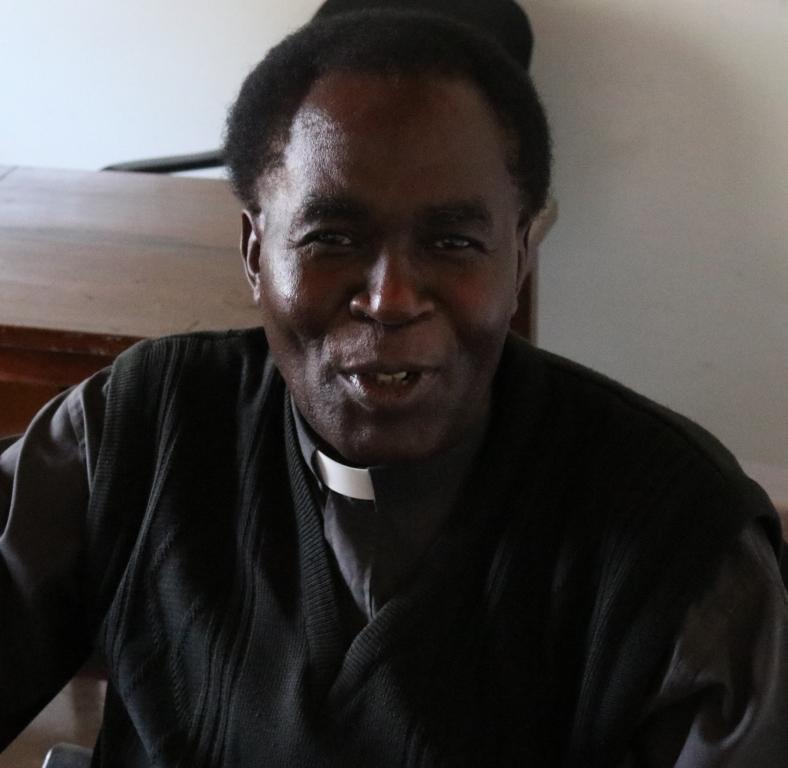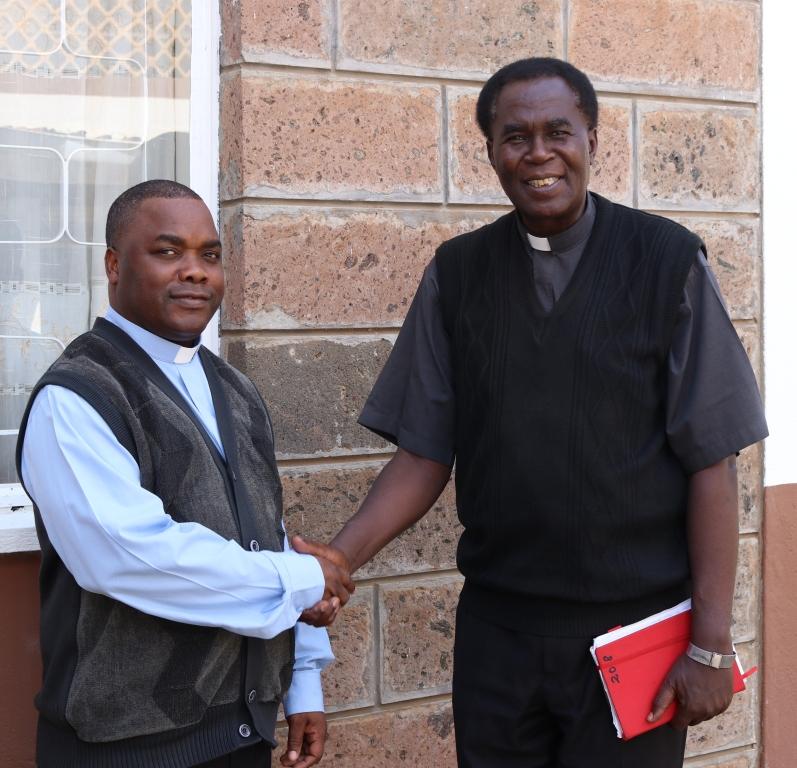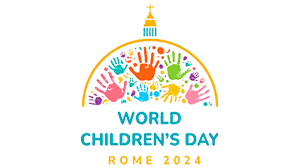KENYA: UZIMA University College, the Little Known AMECEA Medical Training Institution

rincipal of Uzima College Very Rev. Fr. Cosmas Rhagot K’Otienoh- STB, SSL, PhD during the Interview at AMECEA Secretariat in Nairobi
Uzima University College, a constituent College of the Catholic University of Eastern Africa founded in the Archdiocese of Kisumu has been offering medical training since 2012. The first batch of medical doctors graduated in October this year with Bachelors in Medicine and Bachelors in Surgery, having successfully gone through a six-year training period.
AMECEA Online News interviewed Very Rev. Fr. Cosmas Rhagot K’Otienoh-STB, SSL, PhD, the Principal of Uzima University College in a bid to shed some light about the university, its history as well as what it offers to AMECEA.
AMECEA Online News: How did Uzima University College come to be?
Principal Uzima University: Uzima University College is the brainchild of His Grace Archbishop Emeritus Zacchaeus Okoth who, seeing the need and the suffering of the people especially in the Western Region of Kenya, decide to collect funds from Christians of the Archdiocese in order to build this state of the art University College that specializes only in medicine.
It is the first of its kind in Africa and it opened its doors to the first 21 students: 19 of which were doing Bachelors in Medicine and Bachelors in Surgery MBCHB and four of them were to do Bachelors of Science (BSC) in Nursing. The university started teaching on the 27th August 2012 with the 21 students. It was a very humble beginning because our thrust was pure medicine – Bachelor of Medicine and Bachelor of Surgery and Bachelor of Science in Nursing.
After the first year, we saw the need to introduce other courses and therefore we added Bachelor of Science in Microbiology, and Bachelor of Science in Clinical Medicine which was divided into two, namely Diploma in Clinical Medicine which is a three-year course and Bachelor of Science in Clinical Medicine which is a four-year course. So after introducing these new courses, the number of student increased as well as the number of perspective students who showed other interests still in medicine but in other fields of medicine. This prompted us to add yet again other courses to meet the needs and thus the introduction of Bachelor of Science in Community Health and Nutrition.
Today as we speak Uzima has 603 students whose are taking the courses that I have just mentioned. Our target is to hit a thousand mark and therefore we are appealing to AMECEA countries to send students who are interested in pursuing a career in medicine to join Uzima College .
AMECEA Online News: How credible is the University?
Principal Uzima University: Uzima University College is an accredited University by the Commission for the University Education in Kenya (CUE) and thoroughly supervised. Apart from the frequent supervision by the Commission for University Education and cognisant of the fact that you cannot offer any high education courses in Kenya without involving the regulatory bodies, Uzima University College is regulated by the Kenya Medical Regulatory Bodies, which include the Kenya Medical Practitioners and Dentist Board, the Council of Clinical Medicine and the Nursing Council of Kenya which are the three main bodies that regulate us. From time to time we have visitors coming from any of these regulatory bodies to check whether what we are offering is up to the standards, and I can attest that up to now they are impressed with us.
In terms of personnel, I would say that the University is well staffed. We have 25 core staff including professors and doctors in Medical fields lecturing as full time tutors. In addition, we have 50 part time lecturers; in total we have 75 lecturers.
AMECEA Online News: Does the university have all the necessary facilities to handle medical training?
Principal Uzima University: In terms of facilities: Before we opened our gates to recruit students, the Commission for University Education as well as the Kenya Medical Practitioners and Dentists Board came to verify whether we were up to the mark. They were there to verify that we had the right equipment to conduct the trainings and I will not shy from saying that we have the best medical labs in the country. The best state-of-the-art labs in the country that you don’t find anywhere in Kenya; for this we thank His Grace Archbishop Emeritus Zacchaeus Okoth.
Most of the equipment that we have came from Germany. You know Germans are very thorough people, so they came, assembled the equipment and ensured that we were ready to go. You cannot have a medical school without an anatomy lab and so this was the first facility that was assembled at the University. The first two years for any medical student are spent in an anatomy lab, where they handle the bodies.
We have an Act of Parliament that enables us to acquire from hospitals bodies that have not been claimed for the last six months; bodies which are in good state to be used by our first and second year medical students. As I said earlier, every medical student must go through an anatomy lab for the first two years of their studies and it is not a walk in the park. We have had students who come in very enthusiastically to study medicine and their introduction to the anatomy lab puts some of them off, so they change to other courses and this is understandable because not everybody can be a doctor. You can have the wish but if you are confronted with the body and you have to open it up, then it takes only the brave hearts.
AMECEA Online News: Does the University have any students from outside Kenya?
Principal Uzima University: Yes. Our very first foreign student was from Nigeria, he heard of Uzima and decided to come. Following the graduation of our first students in Bachelor of Science in Medicine and Bachelor of Science in Surgery upon completion of a successful six-years course, we are now appealing to AMECEA countries to send us students. I’m sure that in most of our AMECEA countries, there is great need for health workers: doctors, nurses and clinicians. What we are offering in Uzima is quality education in medical studies with competitive and affordable tuition fee, in a friendly Church-run institution whose aim is to improve live.
AMECEA Online News: The University of Nairobi School of Medicine is attached to Kenyatta National Teaching and Referral Hospital. What about Uzima University?
Principal Uzima University: For a medical school to function, it is a requirement by the Kenyan law that it is attached to a teaching and referral hospital. Uzima is attached to Jaramogi Oginga Odinga Teaching and Referral Hospital. We are however not the only university that uses this facility. We share it with Maseno University which also offers medicine

Rev. Fr. Cosmas Rhagot K’Otieno, PhD (Right)
With Rev. Fr. Emmanuel Chimombo
AMECEA Pastoral Department Coordinator
and Deputy Secretary General
AMECEA Online News: How does the tuition at Uzima University College compare to other local universities offering the same field?
Principal Uzima University: The tuition fee that any students who comes to Uzima must pay is very competitive. In fact, we charge the lowest compared to other universities. This is because of the service we want to give to our people. Our main aim is to make the course as affordable as possible so that many can be attracted to the field, thereby increasing the number of qualified medical personnel not just in Kenya but in the whole of AMECEA region.
Up to now we have been charging Kshs. 450,000/= (US $ 4500) per academic year. But we have been told that it is too low and we are currently reviewing it. However, it will still remain competitive and affordable.
AMECEA Online News: How is Uzima University College giving back to the community?
Principal Uzima University: Uzima is giving back to the community through outreach programs. The Archdiocese of Kisumu has very good health facilities that are Church-run, among them is St. Monica Hospital situated at Riat Hills in the outskirts of Kisumu town; Koru Holy Family Mission Hospital; Chiga Mission Hospital; Lwak Mission Hospital; Sega Mission Hospital; St. Joseph Nyabondo Mission Hospital to mention but a few. We send our students to work in these health facilities so that they can help treat, diagnose and do tests in these hospitals
It is alleged that HIV/AID is more prevalent in Western Kenya around Lake Victoria. How is Uzima college involved to mitigate the HIV/Aids pandemic?
Principal Uzima University: One of the areas where the University is very much involved is research. The area of HIV Infection is a thorn in the Lake region. We are currently involved in doing research to try to find solutions to mitigate the prevalence of HIV. We are also working in collaboration with Centre for Disease Control (CDC) and Kenya Medical Research Institute (KEMRI). In areas of research you cannot work alone, you have to collaborate with taller brothers who have been there.
Another area where we are involved is research on mother to child transmitting of the HIV viruses. Here we are collaborating with the Emory State University in Atlanta Georgia, USA. Another University we are currently collaborating with is the Penn State University in Pennsylvania. So in short I can say that the University is doing a lot of research work with an aim of discovering what is ailing our people.
~End~


